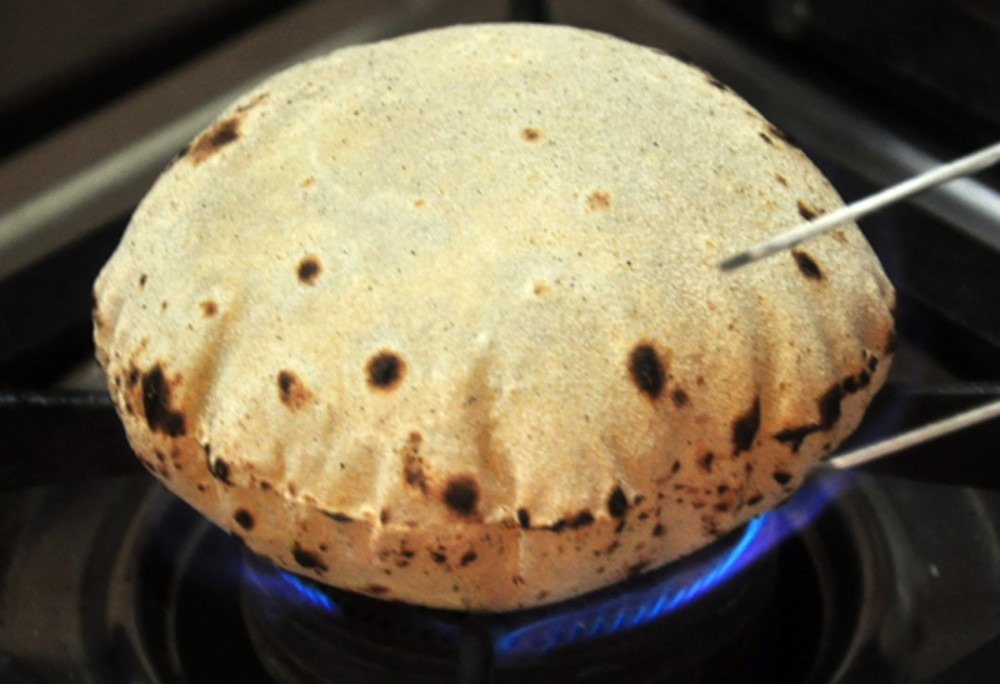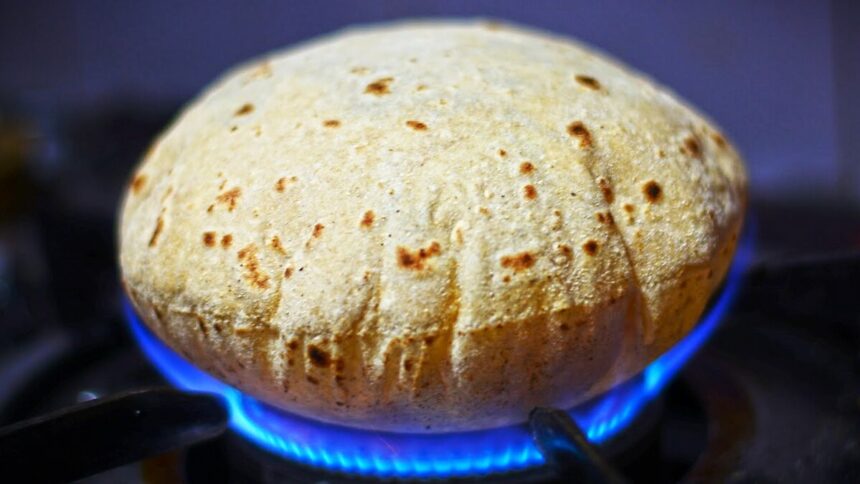Rotis, also known as chapatis, are a staple in Indian cuisine, enjoyed for their simple ingredients and comforting taste. Traditionally, these flatbreads are cooked on a hot pan and then directly over a gas flame, a method that not only enhances flavor but also causes the bread to puff up. However, recent research has raised questions about the safety of this cooking method, particularly its potential link to cancer. In this article, we’ll explore the health risks associated with cooking rotis on a gas flame and discuss how to balance traditional practices with modern health considerations.
Cooking Rotis on a Gas Flame: Health Risks
Rotis are a cherished part of many Indian diets, and cooking them over a gas flame is a time-honored tradition. However, a 2015 study published in Environmental Science and Technology has brought attention to some concerning health risks associated with this method. The study found that natural gas stoves emit pollutants such as particulate matter, nitrogen dioxide, and carbon monoxide. These emissions are recognized as hazardous by the World Health Organization (WHO) and have been linked to serious health issues, including cancer, heart disease, and respiratory problems.
One of the primary concerns with cooking rotis over a direct gas flame is the creation of harmful by-products at high temperatures. When rotis are cooked at high heat, they can release carcinogenic compounds that, if inhaled or ingested over time, might increase the risk of developing colorectal cancer. This risk is heightened if the rotis are burned or if the cooking environment is poorly ventilated.

Should You Change Your Traditional Cooking Methods?
While the potential risks associated with cooking rotis over a gas flame are concerning, it’s important not to panic. The traditional method of cooking rotis can still be part of a healthy diet, provided certain precautions are taken. Here are some tips to help minimize health risks while still enjoying this traditional cooking method:
- Improve Kitchen Ventilation: Ensure that your kitchen is well-ventilated to reduce exposure to harmful fumes. Use an exhaust fan or open windows to help disperse any pollutants emitted during cooking.
- Reduce Cooking Time: Try to minimize the time the rotis are exposed to the direct flame. Avoid burning the rotis, as burnt food can increase the production of harmful compounds.
- Maintain a Clean Cooking Environment: Regularly clean your stove and cooking surfaces to prevent the buildup of residues that could contribute to the release of harmful substances.
- Consider Alternative Cooking Methods: If you’re concerned about the risks, consider using alternative cooking methods such as using a griddle or an electric stove, which may produce fewer pollutants.
Balancing Tradition and Health
Rotis are a valuable source of complex carbohydrates, dietary fiber, and essential nutrients, especially when made from whole wheat flour. They play a significant role in many people’s diets, particularly in northern and central India. Therefore, it’s crucial to balance traditional cooking methods with modern health considerations.
Incorporating rotis into a balanced diet remains beneficial, provided that cooking practices are mindful of potential health risks. By adopting healthier cooking techniques and ensuring proper ventilation, you can continue to enjoy rotis without significantly increasing health risks.
Consult a Healthcare Professional
If you have concerns about the potential health impacts of cooking methods, it’s wise to consult a healthcare professional. Routine health screenings, dietary adjustments, and adopting safer cooking techniques can help mitigate risks. Early diagnosis of exposure-related health issues is crucial for timely treatment, so seeking expert guidance is essential for prevention and care.
In summary, while cooking rotis over a gas flame does come with some potential health risks, these can be managed with proper precautions. By improving ventilation, reducing cooking time, and considering alternative methods, you can continue to enjoy this beloved food while maintaining a focus on health.
Read More: Eating less salt will improve your health, you will get benefits from heart to kidney





